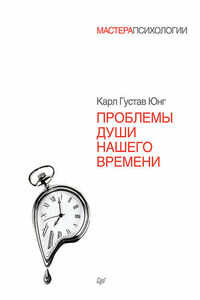Has she really changed?
Former beauty queen Isabel Baxter returns to her hometown, scarred after a near-fatal accident. But in high school, she was the fantasy of every teenage boy in Haggerston, Montana, including James Hunter. Even though James was too far below her social circle to be noticedâ¦
Now her fatherâs attorney, James isnât ready to forgive Isabel for the part she played in his own family tragedy. Yet she seems eager to make amends and prove herself capable of being more than a pretty face. Has the girl he once worshippedâhis bossâs daughterâgrown into a woman James can respectâ¦and maybe love?
Isabel grimaced.
âI feel terrible about forgetting you. I was so self-involved back then. I donât even know what to say.â
âItâs okay,â James said gruffly. âSo, how are you?â
âIâm fine. Just working in the store, andââ How was she supposed to ask for a favor now? âIâI was wondering if you might be free to help me move something this morning. Feel free to charge the time to my father.â
He was silent. She wondered if sheâd just made an even bigger fool of herself.
âSure,â he said at last. âAnd no need to charge your father.â There was a smile in his voice. âSee you in a bit.â
Was that forgiveness she heard in his tone? James struck her as a man who didnât talk about his feelings too often. Call it gut instinctâshe knew men, if nothing else. She had a feeling that while James seemed to fight it tooth and nail, he was becoming her friend.
Whether he liked it or not.
Dear Reader,
When youâre twenty-two, you have it. Youth has a beauty and allure all its own, and when you look back on photos of your twenty-two-year-old self, you wonder what you were agonizing over back then. Then you get into the business of life, and you get married, have kids, start going gray⦠Your body changes, your perspective changes, and the other women who are in the same boat start reassuring youâperhaps a little too ardentlyâthat youâve still got it. Youâre a âhot mama.â
Whoever first told us that itâs our job to be âhotâ? And why on earth did we accept the position? âThe successful candidate will be a visual stimulus for males within her general vicinity.â
Thereâs nothing wrong with being attractive. I am beautifulâmy husband reminds me of it all the time. But Iâm a womanânot a trophy. Iâm a partner, a cheerleader, a warrior, a defender. Letâs start with the assumption that weâre all beautifulâbecause you are!âthen letâs go forward from there. What else are you? And what are you going to do with the wealth of skill, insight and passion that you bring to the party?
It isnât my job to be âhot.â My job includes being intelligent, thoughtful and caring. Being well-read is an advantage, and when it comes to protecting the women around me, Iâm a force to be reckoned with. When men see me coming, I donât want appraising glances. My body isnât their business, and if this brain intimidates them, then they can call me âmaâam.â I prefer it that way, anyway. Ladies, weâre so much more than what society asks of us. I will never call you hot, but I will most certainly call you magnificent!
If youâd like to connect with me, you can find me on Facebook, or at my website, patriciajohnsromance.com.
Patricia Johns
PATRICIA JOHNS has her honors BA in English literature. She lives in Alberta, Canada, with her husband and son where she writes full-time. Her first Harlequin novel came out in 2013, and you can find her books in the Love Inspired, Western Romance and Heartwarming lines.
To my mom, the businesswoman.
Sheâs five-two and tough as they come. Give her a goal and she sinks her teeth into it, then shakes the stuffing out of it. âAlmostâ isnât good enough for her. I love you, Mom. You taught me well!
CHAPTER ONE
ISABEL BAXTERâS STOMACH curdled as she glanced around the sunny living room of her childhood homeâa rambling, three-story house just outside Haggerston, Montana. Coming home wasnât the same since her fatherâs second marriage, the thought of which still left her angry. The house itself had stood the test of time, but the interior had not. The portrait of her parents was gone, replaced by a jarring abstract painting over the stone fireplace. The removal of that portrait was to be expected, of course, but it still felt like a betrayal to the family they used to be. The antique rocking chair that had belonged to Isabelâs maternal grandmother had also been removed, replaced by a modern monstrosity that looked like a dried orange peel, a cup waiting to embrace the hindquarters of unsuspecting visitors.














